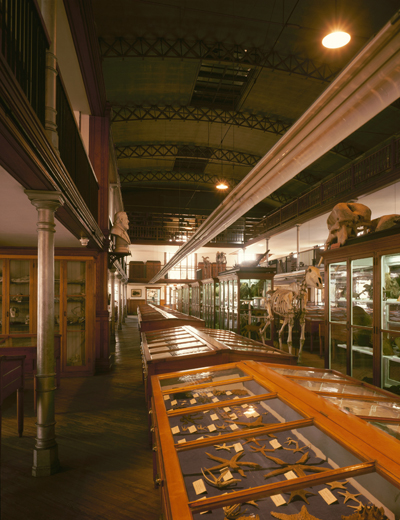 One of the oldest museums in the country strives to become more efficient
One of the oldest museums in the country strives to become more efficient
by Will Dean
When a fire broke out at the Wagner Free Institute of Science last February, they decided it was time to do something about their 100-year-old heating system.
“Right now we have one steam boiler and it will be replaced by four high-efficiency boilers,” says Museum Educator and Communications Coordinator Lauren Zalut. “Before, we had no zone control, and because of problems with the system, it would be 40 degrees in some sections during the winter.”
Like the heating system, the Wagner building is old, and has the unique distinction of having its permanent collection being unchanged since the early 20th century. This makes part of the museum a museum about Victorian science museums (if that’s not too confusing). The Wagner has a natural history section with thousands of preserved specimens, a research library chronicling the history of science, and it looks just like it did 100 years ago.
Despite its focus on the past, though, the museum is concerned with present issues. “Being a science museum, we [present] information about climate change and we want to stay relevant,” Zalut says of the Wagner’s efficiency upgrade. The museum also stays current with lecture series on new topics in science, like the Colony Collapse Disorder that recently decimated bee populations, and hosts free adult science classes on the weekends and evenings on everything from botany to paleontology. The Wagner also funds the award-winning GeoKids science education program with four Philly schools.
With their focus on retaining their turn-of-the-century look and design, upgrading the building up to LEED standards—the Wagner’s eventual goal—presents unique problems. “We’re trying to be a model of how to retrofit a small historical site without changing the look,” says Zalut. “But it’ll take a long time.”
For now, the Wagner is upgrading their fire-starter heating system, which will save a lot of energy and keep the building warmer, instituting a recycling program and using a worm bin composter (fed by employees’ scraps) as a demonstration to visitors. Over the years, the museum intends to retrofit the whole building to make it more efficient, and hopefully no one will notice a single change.
Wagner Free Institute of Science, 1700 W. Montgomery Ave., 215-763-6529, wagnerfreeinstitute.org


